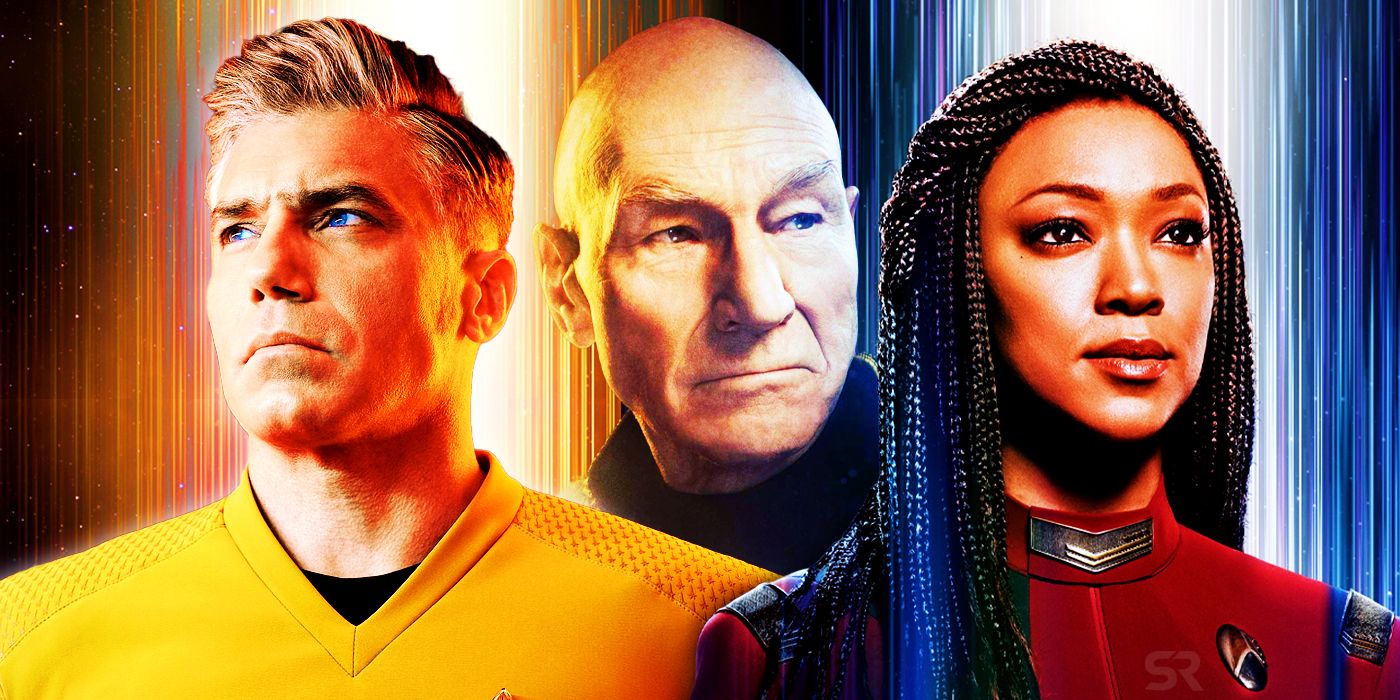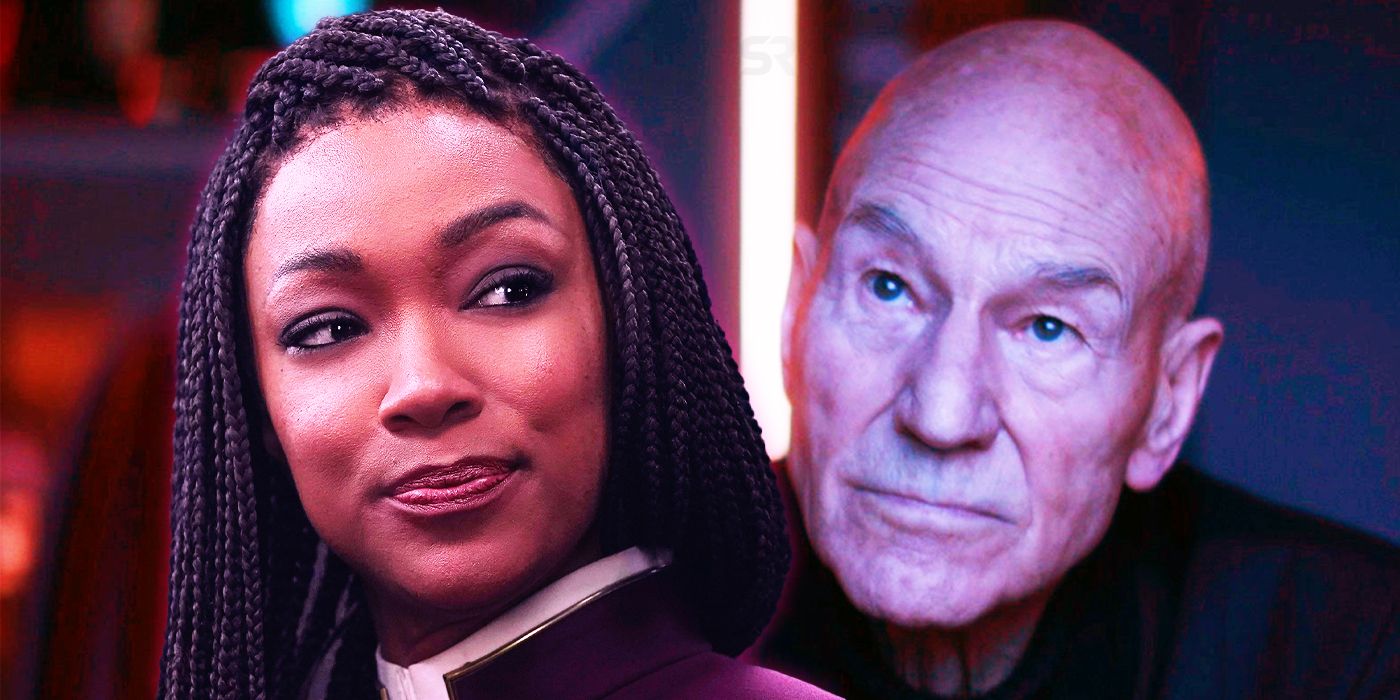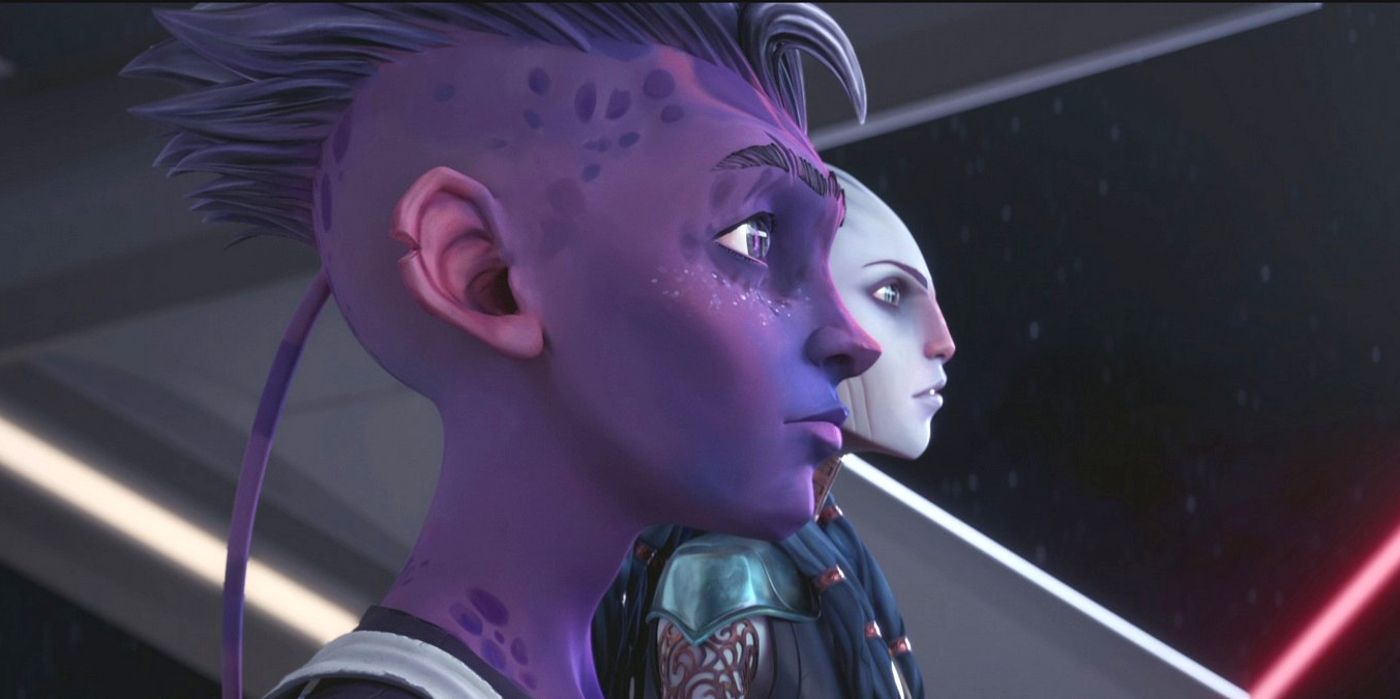There are five new Star Trek series streaming on Paramount+ yet none can claim to be the flagship show, which is a good thing for the franchise. 2022 was a landmark year for Star Trek as there was a new episode (and sometimes two) streaming almost every Thursday for the entire year. This is primed to resume in 2023 as Star Trek: Picard, Star Trek: Strange New Worlds, and Star Trek: Lower Decks are all set to come back, with Star Trek: Discovery and Star Trek: Prodigy expected to join them later in the year.
In the 1990s, Star Trek: The Next Generation was the flagship show of the franchise which grew to include Star Trek: Deep Space Nine, Star Trek: Voyager, and Star Trek: Enterprise. Of the three shows set in the 24th century, TNG was the clear centerpiece, even after The Next Generation ended in season 7 and took over the movie franchise from 1994-2002. DS9 focused on its expansive Dominion War storyline, but Paramount's focus was on Voyager, the episodic successor to TNG starring Kate Mulgrew as Janeway, Star Trek's first female Captain to lead her own show. After 12 years of no new Trek shows, Star Trek: Discovery premiered in 2017 on CBS All-Access. Little did anyone realize at the time how Disco would spark a Star Trek renaissance.
Star Trek Not Having A Flagship Show Is A Good Thing
Although Star Trek: Discovery was the first of the new wave of Trek shows that now includes Picard, Lower Decks, Prodigy, and Strange New Worlds, it's not necessarily considered the flagship Star Trek series. To its credit, Discovery left its original, problematic 23rd-century prequel setting and jumped to the 32nd century, where it now charts new canon in the distant future. Meanwhile, Picard is set in the early 25th century while Lower Decks and Prodigy are exploring the end of the 24th century. Finally, Strange New Worlds is filling in the pivotal mid-23rd century years before Captain James T. Kirk (William Shatner) takes command of the Starship Enterprise.
It can be argued that Star Trek: Discovery is the flagship series since it was the first new show, but most of the other series aren't spinoffs or modeled after Disco. Strange New Worlds is technically a spinoff of Discovery, but it takes its tone and inspiration as a modernization of classic 1960s Star Trek, and it is episodic instead of serialized. Only Lower Decks and Prodigy take place within a few years of each other, while the live-action shows all are set in different centuries and eras. It's up to the viewer, then, to decide which Star Trek series they prefer to see as their personal flagship, rather than the franchise determining it.
Star Trek's TV Series Variety Makes The Franchise Stronger
One of the reasons the Star Trek franchise died in the 2000s was the sameness and repetition of the shows. Although Deep Space Nine was a refreshing foray into serialization that predicted today's streaming era, Voyager and Enterprise were copies of The Next Generation's format and often told the same types of stories with slight variations. After hundreds of hours of repetitive Star Trek, the audience had its fill and each series was eventually canceled.
Star Trek's series on Paramount+ learned from the previous era's mistakes, the franchise now delights in variety. Discovery's episodic 32nd-century adventures are action-packed while Picard takes full advantage of nostalgia for TNG. Lower Decks proved comedy has a place in Star Trek while Prodigy brought the franchise's lofty ideals to an appreciative new audience that embraced the true meaning of Trek. Finally, Strange New Worlds reignited the new frontier optimism of the original Star Trek. With a show appealing to every type of Star Trek fan, there's no need to designate any Star Trek series as a flagship. They are all on equal footing honoring the canon of the past while taking Star Trek into the future.



